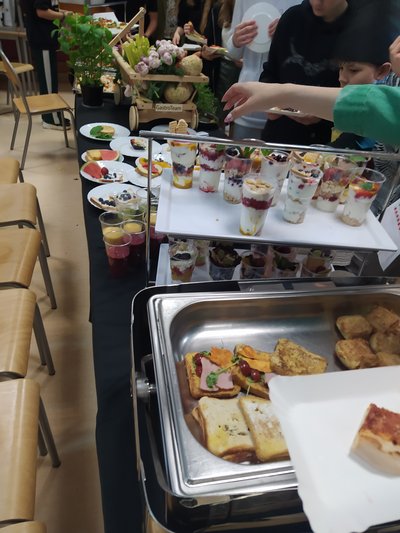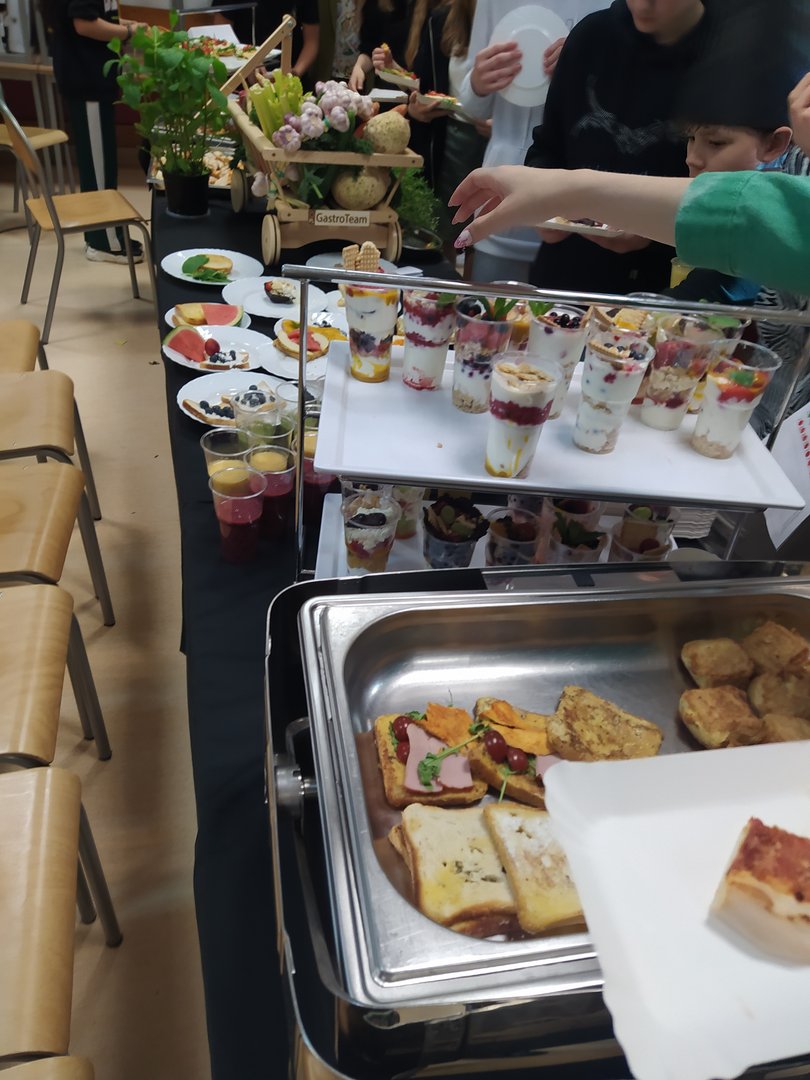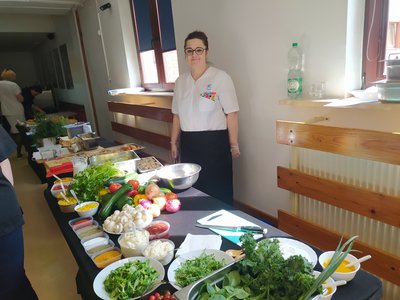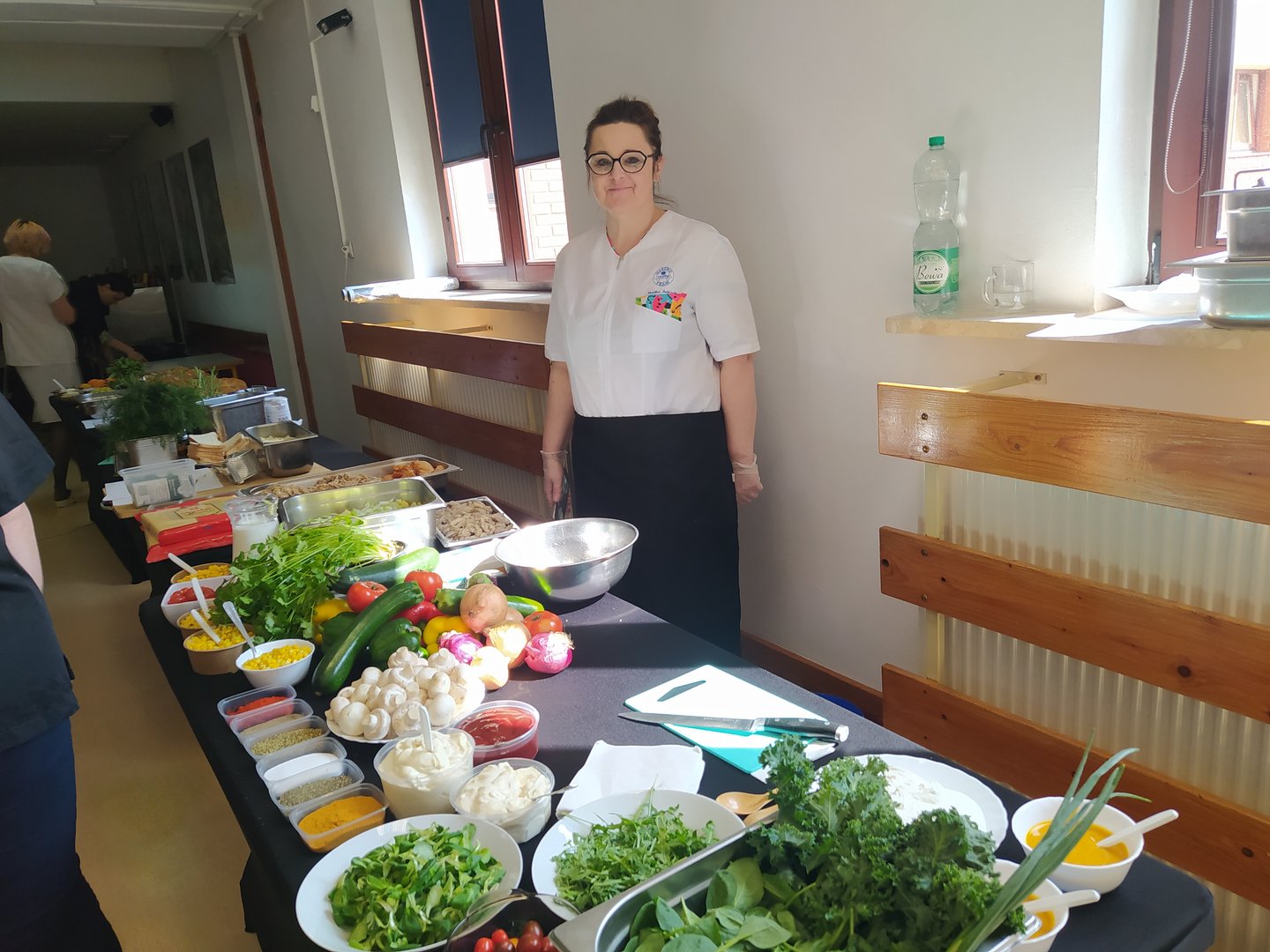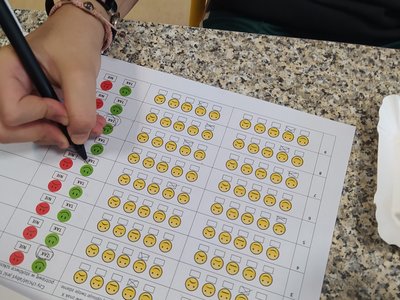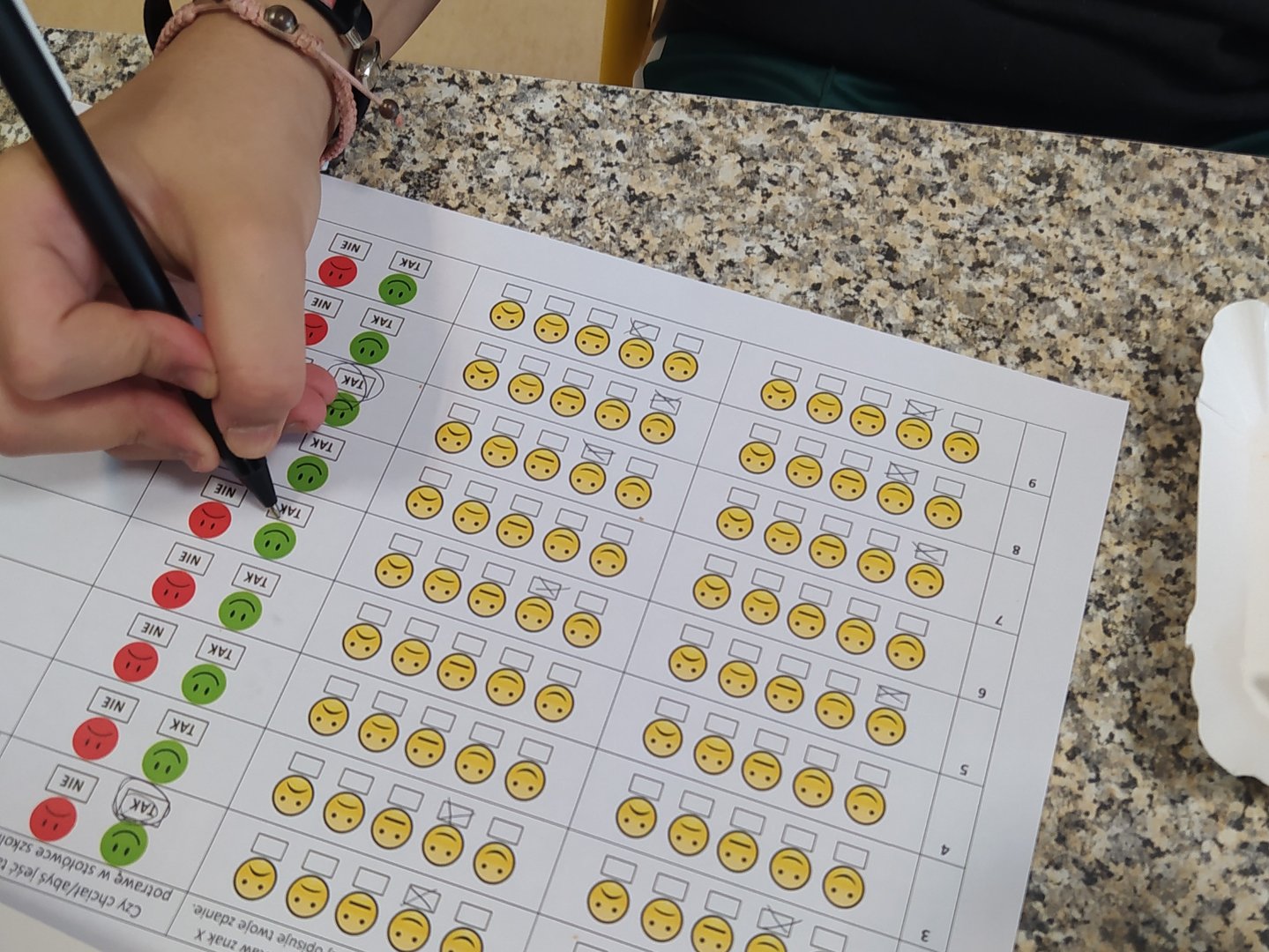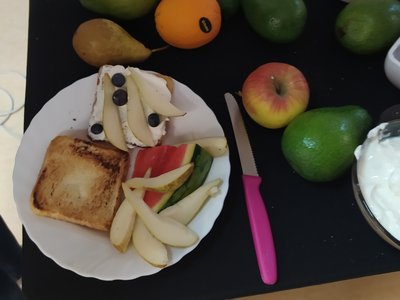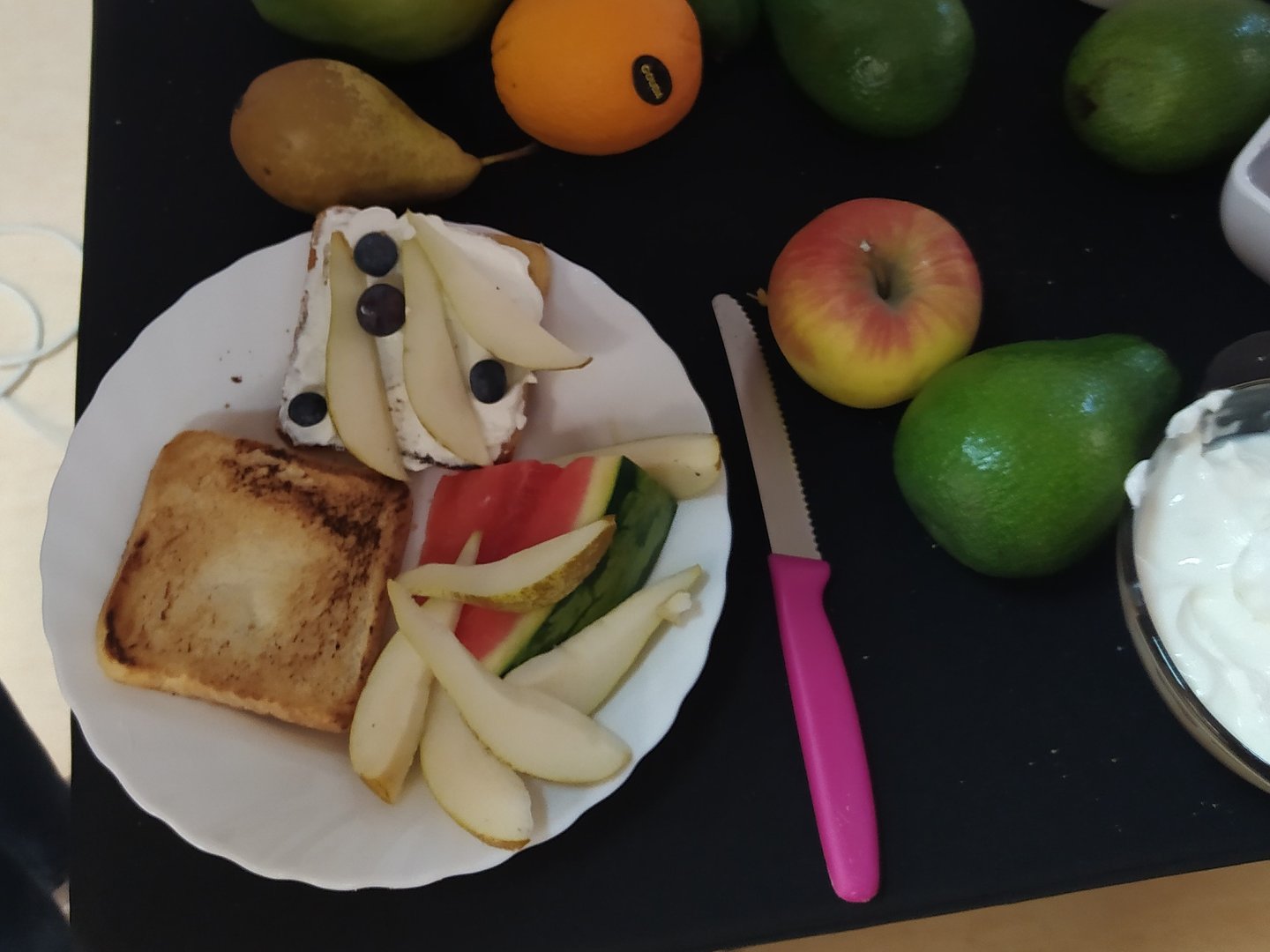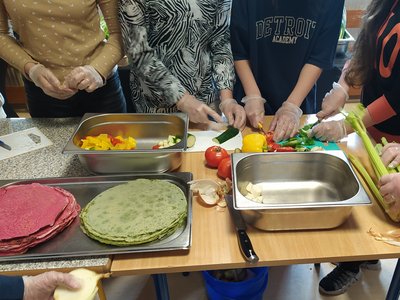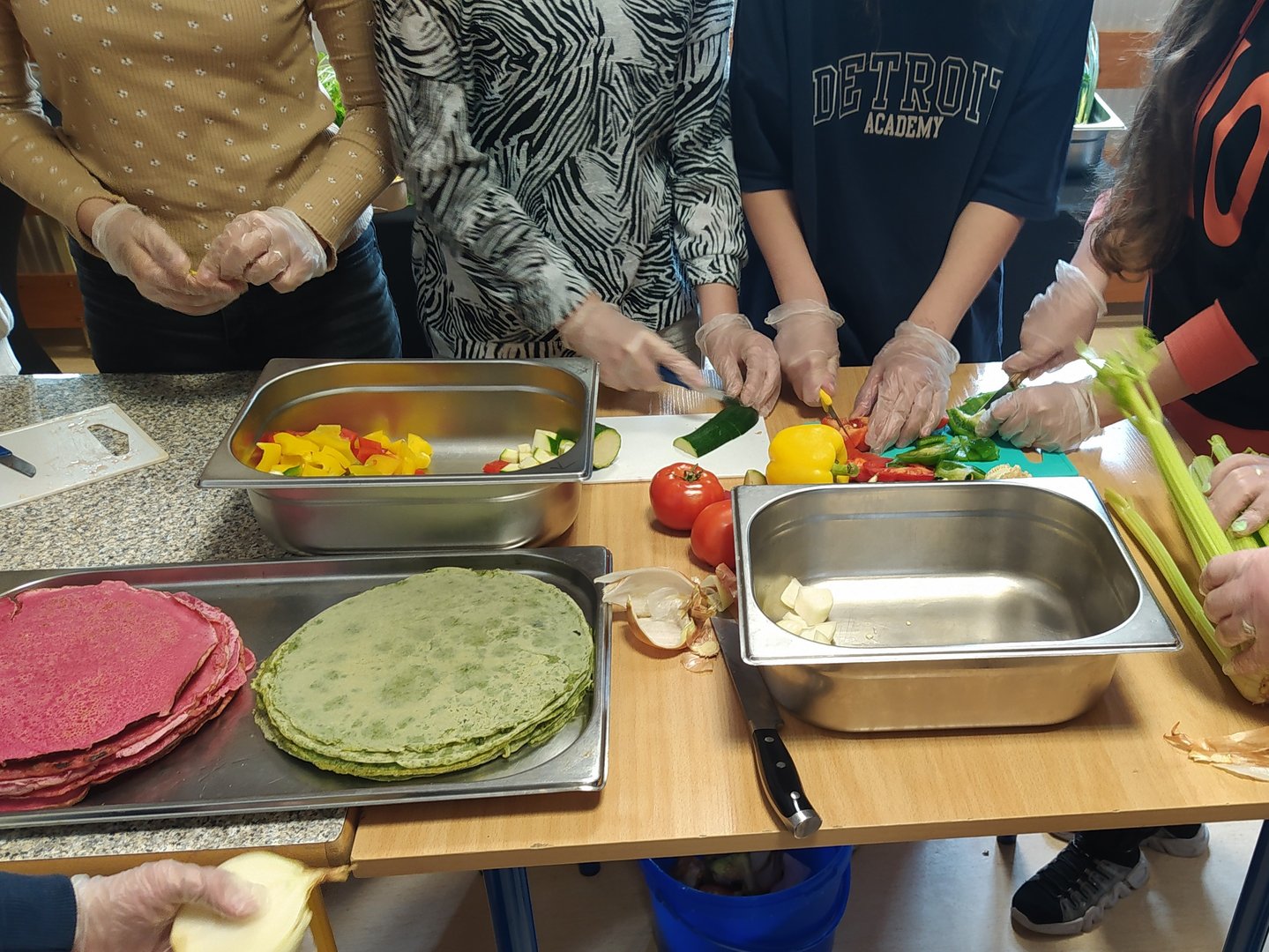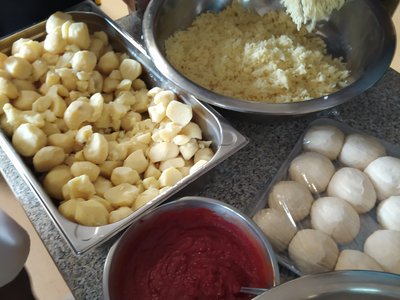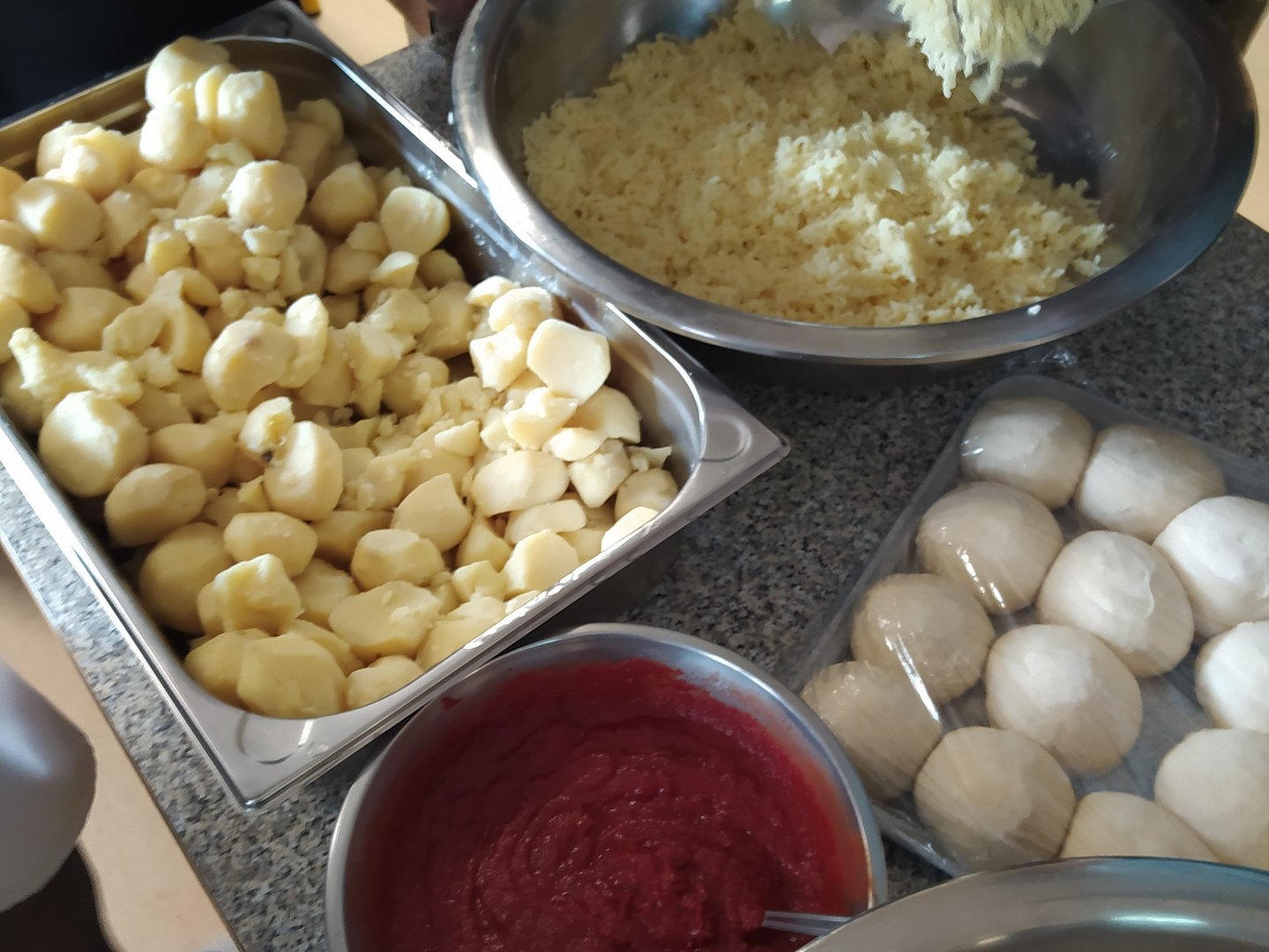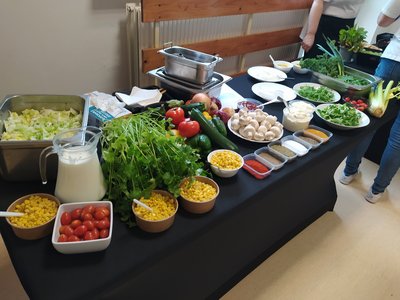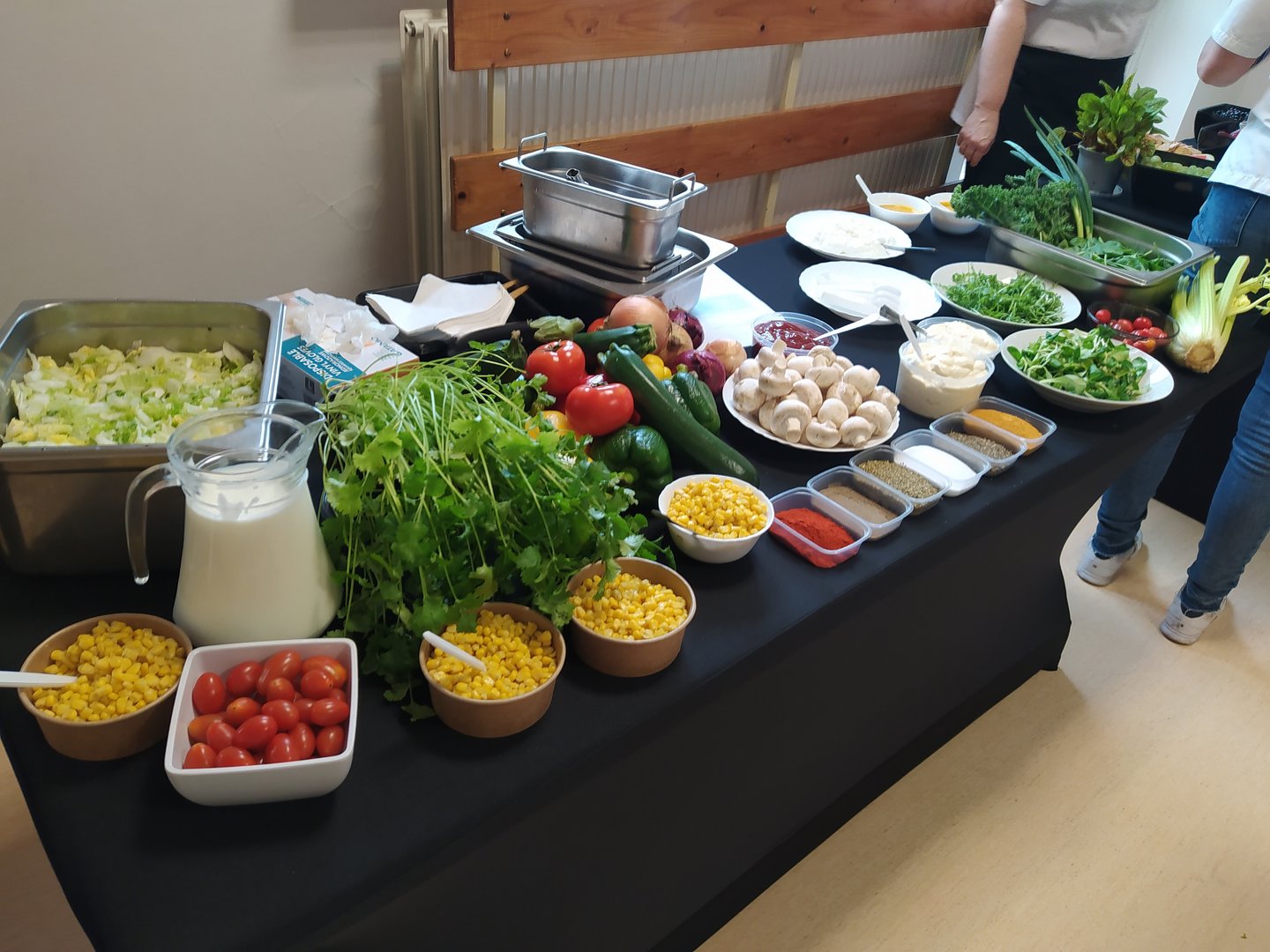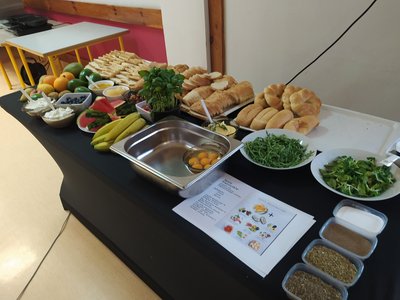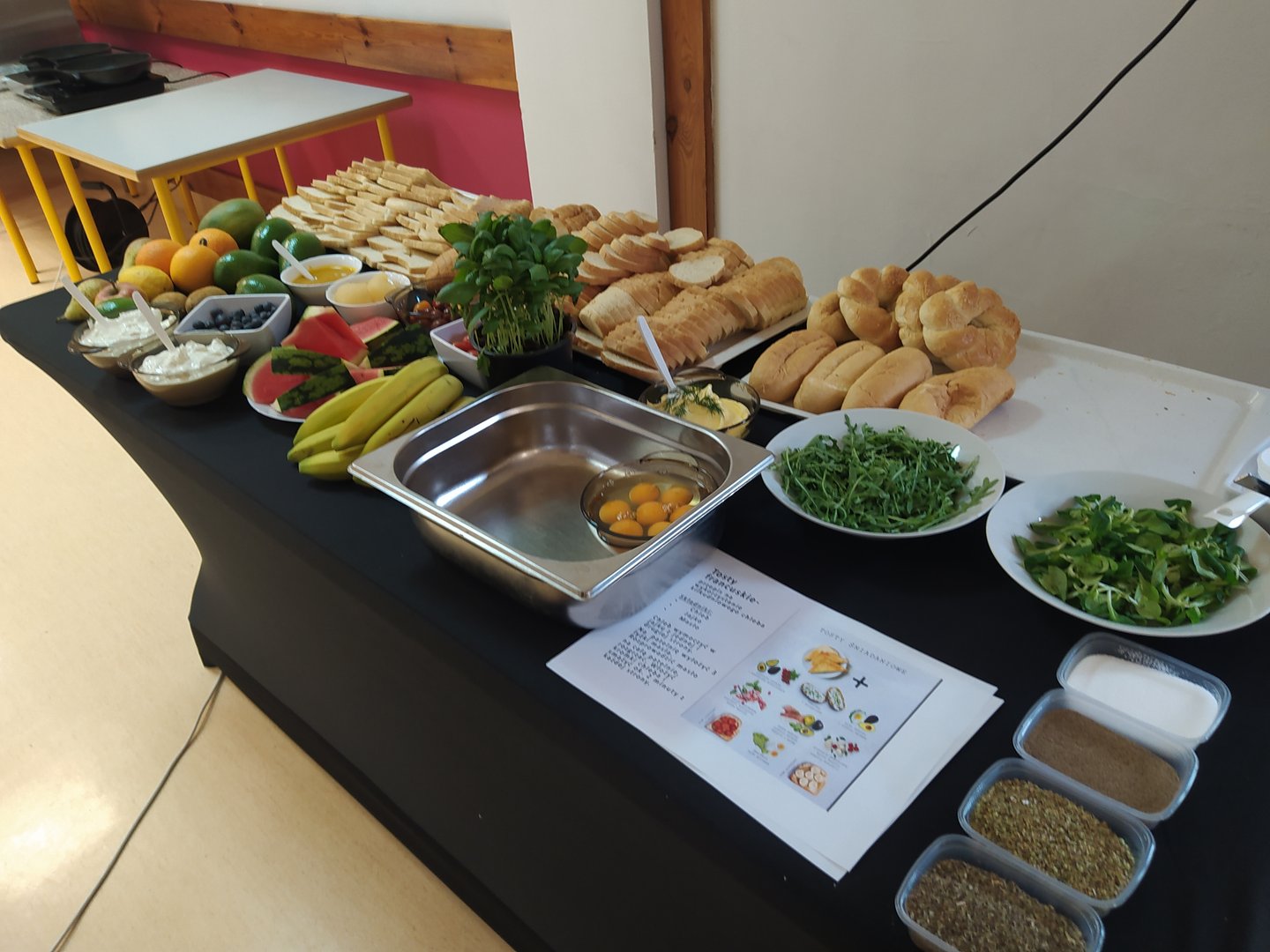Necessary Steps
- Find an expert, who will educate your kitchen staff and pupils about rules and criteria for sustainable meals. It can be a dietitian, nutritionist or an expert from an organisation specialising in sustainable development.
- Plan two workshops for kitchen professionals. The first one is to educate them about the requirements that public meals should meet to be more sustainable. After theory, try to modify with school meals providers some of the typical school meals.
- The second workshop for school meal providers is practical. Together, you cook the new, modified version of a school meal, plus some new, plant-based meal (try to use beans or lentils). This culinary workshop takes place in a studio. You can hire a professional cooking trainer to learn how to prepare attractive and tasty plant-based dishes.
- Pupils attend their own workshops, like kitchen professionals. We suggest workshops with children at age 12-14. At the first meeting, they learn about sustainable meal rules and try to modify their favourite school meals.
- The second meeting for pupils is also in the culinary studio. They prepare the modified version of their favourite school meal plus a new, plant-based dish.
- In the next step, the kitchen professionals prepare small portions of modified school meals plus the new, plant-based dish and serve them in the school canteen. Pupils can taste them and vote for a new, sustainable school meal.
- Children who attended workshops can support the action of introducing the improved school meals. They can help with a poll, prepare some posters promoting sustainable meals, or prepare a stand with the samples.
- You can propose some indication for new, sustainable school meals and mark them in the menu, for example: “meal good for the planet” or “sustainable meal”.
More Issues To Consider
- Every member of school kitchen staff can attend the workshops.
- The workshops can also be organised as part of the cyclic meeting in the tool Getting involved in a change process. In that case, at least two kitchen professionals from each school attend the workshops. The maximum number of participants are about twelve.
- The best option is when school meal providers make their own modifications to popular school meals. Pupils can also make propositions for a more sustainable version of their favourite dishes.
- The exchange of ideas between participants from different schools is also welcome. Workshops can be an opportunity for discussions and inspiration.
- Culinary workshops for school meal providers can be handled by a professional cooking trainer, who specialises in plant-based meals. The same workshops for pupils can be handled by a professional trainer or kitchen professionals from the school. It is important, that both groups prepare dishes that can be new propositions for the school menu.
- Testing of new dishes can be organised during a school events, like Earth Day Event or school promoting events.
